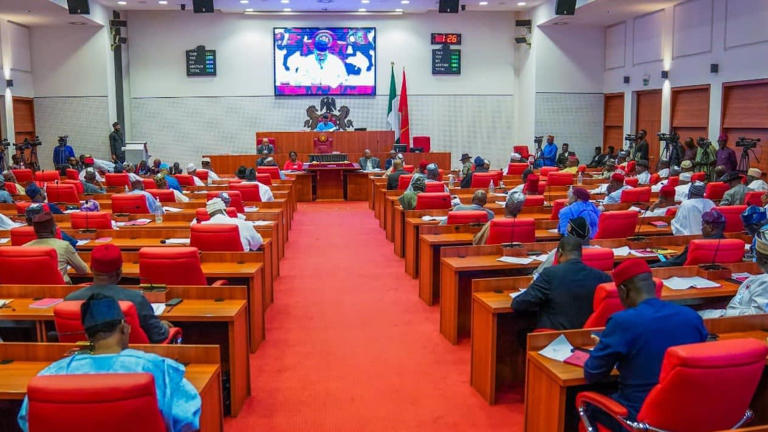Senate Moves to Clamp Down on Social Media Platforms—Here’s What You Need to Know
Senate Moves to Clamp Down on Social Media Platforms—Here’s What You Need to Know
By Achimi Muktar
In a bold legislative move, the Nigerian Senate has passed a bill for second reading that could drastically change the digital landscape in the country. The bill, if enacted, will require all social media platforms to set up physical offices within Nigeria’s borders, effectively forcing companies like Facebook, TikTok, and X (formerly Twitter) to have a local presence.
Additionally, the bill proposes new regulations for bloggers, mandating them to keep clear employment records and belong to a recognized national association headquartered in Abuja.
What’s Behind the Bill?
The bill, titled “A Bill for an Act to amend the Nigeria Data Protection Act, 2023,” was sponsored by Senator Ned Nwoko (Delta North) and aims to tighten control over digital businesses operating in Nigeria.
Senator Nwoko, while leading the debate, argued that despite Nigeria’s massive social media user base—reportedly the largest in Africa—major tech platforms have no physical offices in the country. He highlighted issues such as limited representation for addressing user complaints, lack of local job opportunities, and difficulty enforcing Nigeria’s data protection laws.
“This is not an attack on social media platforms. It is about ensuring fairness,” Nwoko stated. “These multinational corporations must recognize Nigeria’s influence in the digital space and contribute to its economy through taxes, job creation, and compliance with our laws.”
How Will This Affect Social Media Users and Bloggers?
If the bill becomes law, social media platforms will need to register their operations within Nigeria, possibly leading to increased regulatory oversight and taxation. Bloggers, too, will be affected, as they will be required to maintain a verifiable office in one of Nigeria’s capital cities and adhere to stricter regulations.
“We cannot continue to have a situation where individuals operate anonymously, spreading information—sometimes false—without accountability,” Nwoko emphasized.
Pushback and Concerns
While the bill has received broad support from senators, concerns have emerged about potential censorship. Some fear that stricter regulations on social media could be used to suppress dissenting voices.
Senate President Godswill Akpabio, however, sought to reassure the public, saying, “This is not about controlling social media. It is about ensuring that these companies pay their fair share in taxes.”
The bill has now been referred to the Senate Committee on ICT and Cyber Security for further deliberation, with a public hearing expected in the coming months.
Senate Also Investigates Cameroon’s Alleged Annexation of Nigerian Territory
In a separate development, the Senate has launched an investigation into claims that Cameroon has annexed Nigerian maritime territories and oil-rich mangrove islands in Akwa Ibom State.
A motion sponsored by Senator Aniekan Bassey and six others raised alarm over the alleged encroachment, calling it an “affront to Nigeria’s territorial integrity” and a direct economic loss, with over 2,560 oil wells reportedly affected.
Deputy Senate President Barau Jibrin urged immediate intervention by the National Boundary Commission, while Senator Jimoh Ibrahim called for the matter to be escalated to the United Nations.
The Senate has set up an ad-hoc committee to investigate the issue, with a deadline of two weeks to report its findings.
What Happens Next?
As the social media regulation bill moves toward public hearings, Nigerians will be watching closely to see how it impacts digital freedoms and business operations. Meanwhile, the territorial dispute with Cameroon could become a major diplomatic flashpoint, with implications for national security and economic stability.




















